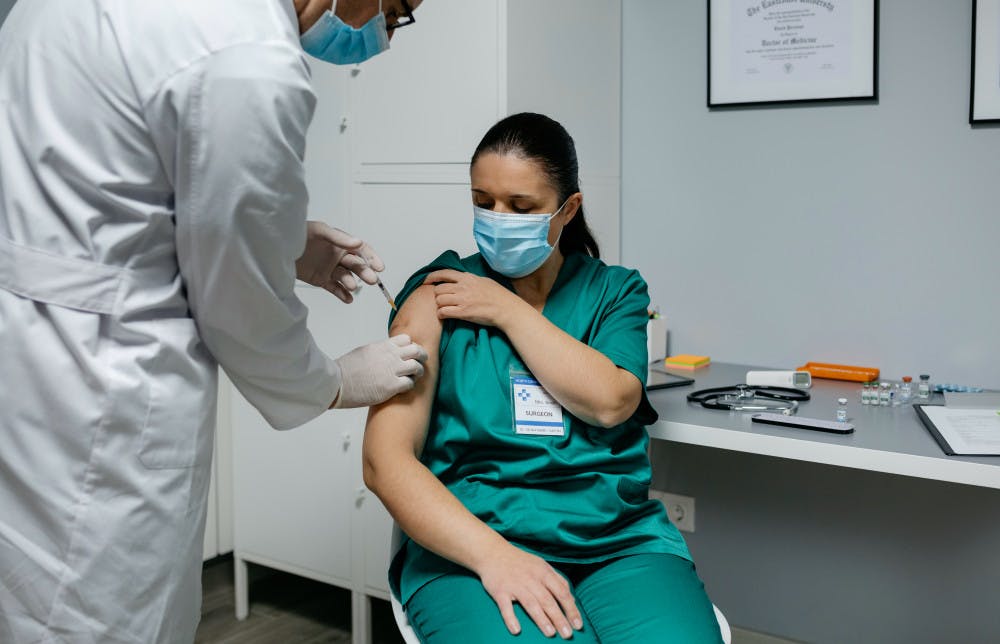By Alycia Gilb
Reviews Editor
Eleven months after the first Covid-19 case was reported in the United States, the Food and Drug Administration (FDA) has approved two vaccines. While vaccinations are a promising step forward in the fight against the virus, they do not promise a quick return to pre-pandemic life.

According to the BBC, American pharmaceutical company, Pfizer, German biotechnical company, BioNTech, and American biotechnical company Moderna, spent mere months developing their Covid-19 vaccinations. The creation of these vaccines was swift, as it usually takes years to develop a vaccine.
The quick creation of the Covid vaccine can be attributed to years of previous research of similar viruses. According to BBC, scientists at the University of Oxford started their research years ago, after the slow response to the Ebola outbreak. In order for scientists to assure a quicker reaction when the next virus hit, they created a long list of possible diseases.
At the bottom of this list was a disease called “Disease X,” which was an unknown virus that was projected to send shockwaves around the world. The scientists were able to develop a “revolutionary” vaccination that they described as “plug and play,” which was flexible and could be tweaked to fit different viruses quickly.
As for efficacy, both of the vaccines being administered in the US have proven to be highly efficient in preventing contraction of coronavirus. While the Pfizer-BioNTech vaccine holds a 95% efficacy rate, the Moderna vaccine is 94.5% effective. In one trial run by Pfizer, out of ten severe Covid-19 cases, only one patient was administered the vaccine.
One of the biggest questions arising with the vaccine is: who will be vaccinated first? Much like the scarcity of testing in the beginning of the pandemic, each of the 50 states are curating plans to make sure the vaccination process is as effective as possible.
The Center for Disease Control (CDC) recommended that healthcare workers and residents of long-term care facilities are vaccinated first, while the vaccine is still limited in supply. This distribution plan kept three goals in mind: to decrease rates of mortality and serious illness, to keep communities up and running and to reduce extra hardship that Covid-19 is placing on certain individuals.
According to nj.com, the New Jersey government plans to vaccinate around half a million people within the next month. In the same article Gov. Phil Murphy said that, “[the Covid vaccine] is for real, it’s safe, it works and we need folks to get it.”
On the state level, the New Jersey Covid-19 Information Hub states that the vaccination program will divide people into four groups. The first group to be vaccinated will be group 1A, which includes individuals working in the healthcare industry, including paid and unpaid employees. Next are categories 1B, essential workers, and 1C, individuals over the age of 65. After these three groups are immunized, the general population will be able to receive the vaccine.
Even after approval by the FDA, individuals are skeptical about receiving the vaccine, as there is still much research to be done. A large concern is the side effects of the shot, including the question of whether it could give the individual Covid-19.
According to the CDC, one relieving fact is that the vaccine does not contain active virus. However, there are known side effects. Most commonly, a Covid-19 vaccine recipient will experience pain and swelling around the injection site. Other side effects include a possible fever, chills, fatigue and headache.
The CDC recommends calling a doctor if there is increased redness or tenderness around the vaccination site after 24 hours, if the side effects become concerning or persistent or if the side effects last more than a couple days. Overall, the side effects of the Covid vaccine are similar to a flu shot.
While vaccines are a promising step in the right direction, it doesn’t mean that things will return to normal immediately, or even quickly. At this point, the Covid vaccine is just another precaution used to stop the spread of the virus. Mask wearing, washing hands and staying six feet apart are still crucial to defeating the virus.
According to an email sent by Dr. Anthony Fauci, director of the National Institute of Allergy and Infectious Diseases (NIAID), to the Washington Post, “the bottom line is that although an effective vaccine will certainly diminish greatly the relative risk of transmission, we still should not completely abandon basic public health measures, including the wearing of masks.”
As we continue to fight the virus, it is important to remember that staying home, wearing masks, and washing our hands is the key to keeping it at bay. While the end of the Covid-19 outbreak may not be in sight just yet, the release of vaccinations gives us hope that a return to normalcy is in the distant, but reachable future.







